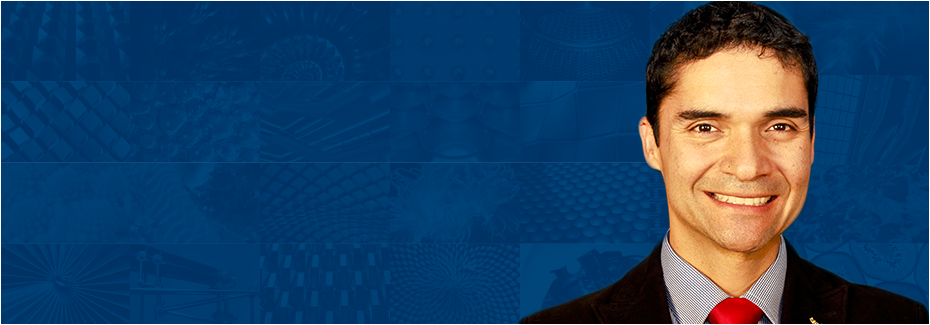University of Florida Materials Science and Engineering Professor Juan Claudio Nino, Ph.D., was honored as a distinguished speaker for the Richard E. Tressler Lectures in Materials at Pennsylvania State University.
The annual series hosted by Pennsylvania State University’s College of Earth and Mineral Sciences recognizes industry and academic leaders conducting innovative research on materials.
Nino’s presentation titled, “Point Defect Engineering and Dynamics in Fluorites: Lessons from Doped Cerium Oxide,” focuses on rare-earth-doped ceria as a model system for showcasing two engineering defects and how to overcome them using electrochemical impedance spectroscopy and lower temperatures of sintering.
Nino is a graduate of Pennsylvania State University, where he completed his doctoral degree in materials science and engineering. His postdoctoral appointment focused on ferroelectric thin films at the Materials Research Institute at State College in Pennsylvania. He joined the University of Florida in 2003 and established the Nino Research Group.
Nino’s research focuses on ceramics, polymers, bio-inspired materials, and their composites. His lab is currently working towards optimizing and developing advanced functional materials for energy conversion and storage, as well as high-frequency and high-temperature electronics, neural networks, semiconductors and scintillators for radiation detection.
The lecture series honors the work of Richard E. Tressler, who was an international leader in developing and testing high-temperature materials, including fiber and ceramics. He also served as the Penn State Department of Materials Science and Engineering chair for 10 years. Tressler enhanced Penn State’s reputation for excellence in materials through a reorganization, new hires and the establishment of the Center for Advanced Materials. He also championed interdisciplinary research, which played a key role in creating the Materials Research Institute.
Tressler retired from Penn State in 2001 as Professor Emeritus of Material Science and Engineering.

